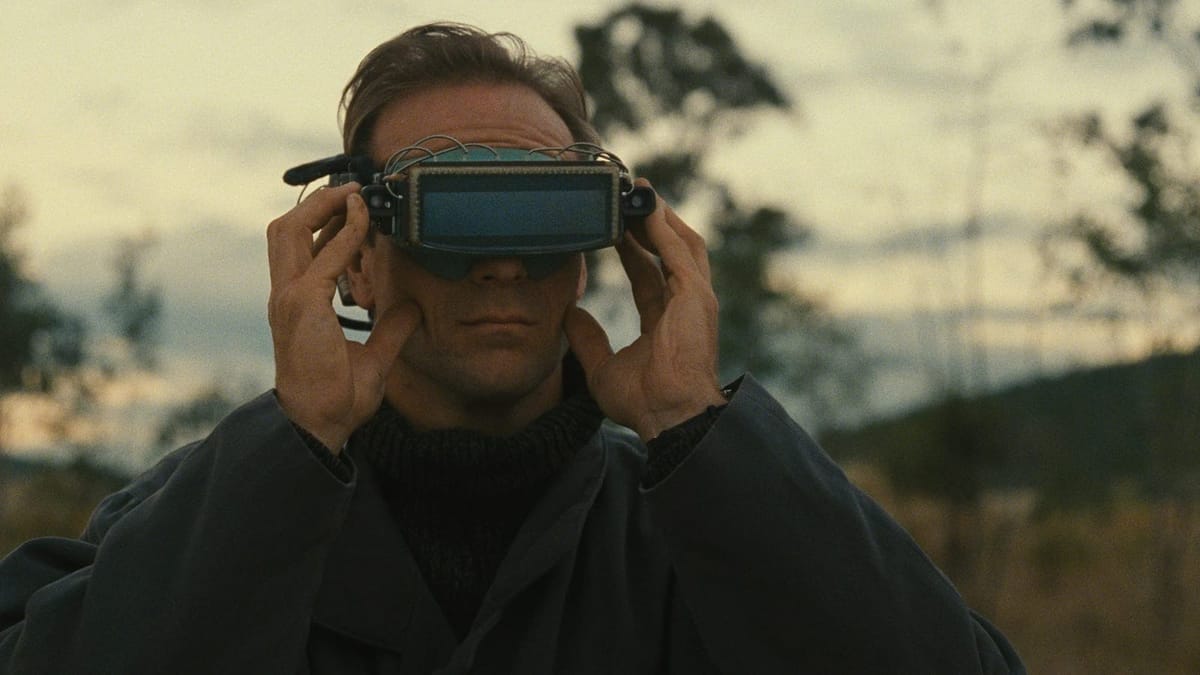Feelings
Skill at interoception is not all that difficult to develop or teach—it’s just often counterintuitive, within a culture that is intensely fixated on outcomes and external validation.

How are you feeling right now?
What physical sensations are you experiencing in your body?
What thoughts are arising in your mind?
I’ve been talking about the importance of facilitating high quality experiences for oneself and for others, so I'll take a moment to define what I mean by both “experience” and “high quality.”

I find it useful to think of “experience” as a conflation of sensations in the body and thoughts in the mind. Sensations and thoughts continually arise within us, moment to moment. The greater our real-time awareness of our sensations, our thoughts, and the way they interact, the greater our agency to shape their flow and thereby manifest our intentions.
Externally, your experiences are endlessly varied. You could be driving a car, eating a meal, engaging in an intense conversation with another person, performing in a concert, and so on. However, the quality of your experiences—the degree of satisfaction you derive from them (or not)—has mostly to do with your internal thoughts and sensations, and how you feel about them.
How are you feeling right now?
What physical sensations are you experiencing in your body?
What thoughts are arising in your mind?
As you notice these sensations and thoughts, does your process of observation impact their flow, or change their nature?

Last week I defined interoception (as it applies to singing) as the ability to sense, communicate with, and engage the internal anatomy that performs all of our breathing, phonating, and resonating.
If you want to improve your breath coordination, it helps to be able to sense, intentionally engage, and consciously move the muscles and tissues that impact subglottal pressure.
If you want to expand your vocal range and resonance options, it helps to be able to sense and expand the physical range of motion of the structures housed inside your neck and head.
Simply put, changing and improving your singing involves changing your movements and improving your coordination. That is always the case, regardless of the extent to which you are consciously aware of effecting the physical changes and improvements that lead to more satisfying singing. However, improving your interoception will empower you to make those changes and improvements more intentionally and swiftly.
This is why I consider the most important part of my job to be helping singers build skill at interoception. It’s not all that difficult to develop or teach—it’s just often counterintuitive, within a culture that is intensely fixated on outcomes and external validation.
I suspect that keen interoception was actually our birthright, before we were instructed that some thoughts, feelings, and movements are virtuous and safe, while others are evil and dangerous. Our birthright… before we fully internalized the biases of our culture, and learned to judge, gate-keep, and inhibit our own ideas, desires, and impulses.
We inherit these inhibitions as a consequence of the sincere best wishes, intentions, and practices of our caregivers and teachers. We end up internalizing rules that may be designed to keep us safe, but ultimately mess us up and endanger us in other ways. Because internalizing these rules disconnects us from our ability to deeply sense and respond to our sensations, thoughts, and feelings. They hobble our powers of interoception.
For example, how did you first learn about sex?
Did you later find it necessary to unlearn some of that stuff, in order to fully enjoy and express your sexuality?

I was born in 1964 and raised in an affluent, mostly white, mostly Christian suburb. My generation learned from our families and religious institutions that, outside of a heterosexual, monogamous marriage, sex was strictly forbidden and immoral. But as teens, we also skirted poorly enforced R ratings and devoured Body Heat, The Hunger, and Risky Business, a film which, after all, centers teenagers from an affluent, mostly white, mostly Christian suburb!
If you want to sort out what kind of sex will most delight you, it helps to have options. Our indoctrination offered us next to none, while the mainstream movies of the early ’80s offered us a smorgasbord. Our upbringing admonished us to judge and stifle our sexual feelings… meanwhile, the hot, lusty creatures on the silver screen beckoned us to take them to the limit and beyond.
Sex actually became significantly less risky for my generation of women, given the robust access we enjoy(ed) to birth control and family planning. By contrast, sex also became significantly riskier in the ’80s and ’90s, before we understood how to avoid and treat the HIV virus.
Sex is always a somewhat risky business (see what I did there).
I absolutely understand why communities want to protect young people from disease, unplanned pregnancies, and nonconsensual encounters, but admonishing them to gate-keep and inhibit the flow of their feelings carries a risk of a different kind—the risk of chronically disrupting their ability to sense and respond to their own desires. Which chronically impedes not only their interoception, but their overall sense of agency.
Sex provides an extreme and widely relatable example of how this can happen, but any time we consent to numb, control, and/or judge our impulses, we limit our access to ourselves, our thoughts, and our movement potential. Reconnecting with and developing our powers of interoception makes it possible for us to perform our own risk assessments, and to make decisions based on our own desires and priorities.
Sexuality is also the best example I can offer that illustrates how something instinctive, natural, and personal can be distorted when a culture imposes rules that effectively disconnect you from your own feelings and impulses.
That is what I believe happens to our powers of interoception. We come into the world with this ability robustly online and ready to be developed, but its development is thwarted by ideas and restrictions that hobble our access to ourselves and impose limitations on our baseline quality of experience.
Fortunately, these powers can be restored, and even expanded.

In my previous post, I promised to offer suggestions for how voice teachers and singers can improve their skill at interoception.
My recommendations are simple. They can be practiced at any time, within any context:
Notice how you are feeling.
Note any physical sensations you are experiencing in your body. Gather as much information as you can, ideally without judging or analyzing what you are noticing. If you find yourself judging and analyzing, just notice that as well.
Note any thoughts that arise within your mind. Notice whether your thoughts seem to be flowing unimpeded, or whether you find yourself judging, analyzing, or otherwise experiencing internal conflict. If you are, no need to do anything about it, just notice.
Note whether there appears to be a correlation between the flow of physical sensation in your body and the flow of thoughts in your mind. Note whether and how your physical tensions and mental conflicts correlate.
The ability to observe both the flow of your internal movements and the language you use to communicate with yourself about them is extraordinarily useful for your singing practice, as well as everything else. And this ability can be improved with practice.
As I pointed out in my previous post, the internal movements of singing can be subtle and difficult to detect. It is much easier to observe them when you are not also judging them, trying to analyze them, and/or assessing how close you are to being able to [insert your outcome here].
In my next post, I will use breath coordination as an example of how to improve interoception of your breathing anatomy, and how to use the information you gather to fine-tune your breath management for singing.





